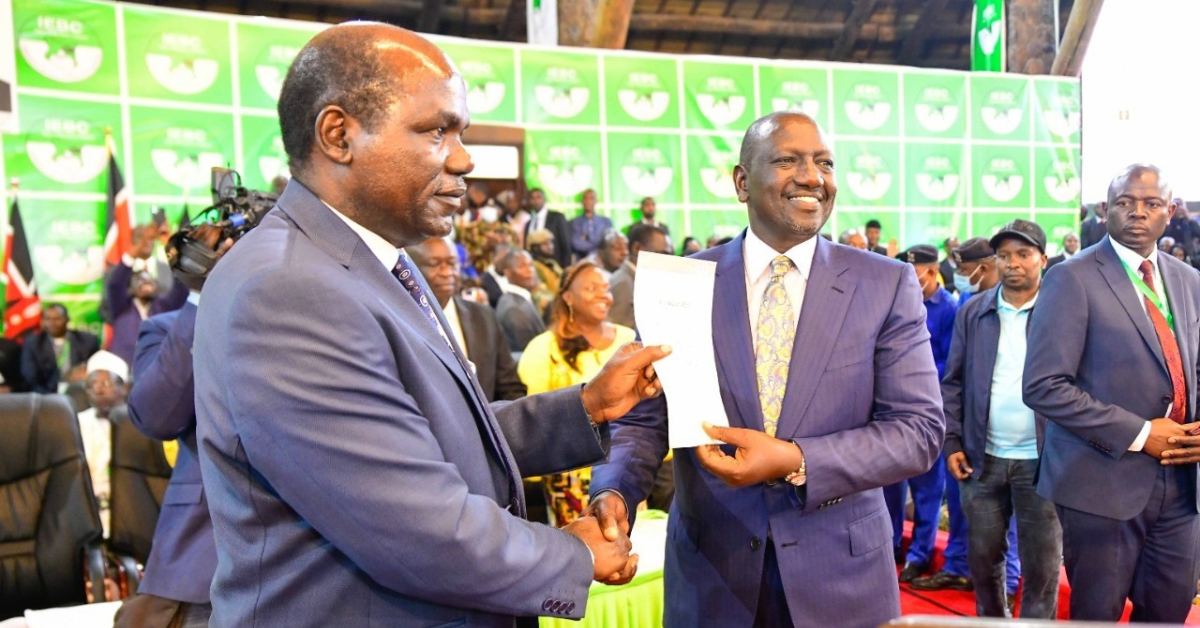Kap Kirwok
February 23 2013
It is only one week to the historic elections. It is panic time, big time – evidently. The dial on the panic barometer is off the charts – for some.
This week I had a chance to discuss the coming elections with a broad spectrum of Kenyans – from a taxi driver and a hawker, to a university student and a senior ex-military official, to a topflight CEO and a high-level judicial official. It left me feeling we are in the grip of a panic epidemic of epic proportions. And it is all about worst-case scenarios. I think some are based on wild-eyed conjectures and conspiracies. Consider the following and my counter argument.
Scenario one:
The West (read USA and key allies in Europe), realising that a Jubilee Coalition win is imminent, orchestrate a series of events that culminate in a military coup-d’état under the pretext of restoring order. The military then promise to hold fresh elections but only after the ICC cases are determined.
This is one of the craziest scenarios I have heard. Although I would not put it past the West to engage in devious and mischievous games, the stakes are not high enough to justify such action. I doubt Uhuru, unlike say Mugabe, would threaten the nationalisation or seizure of foreign owned assets in Kenya. On the contrary, there is every indication (as the new Constitution and on-going judicial reforms make clear) that the sanctity of private property will be strengthened. As for the West’s security concerns, I doubt Uhuru will refuse to cooperate in the fight against Al-Qaeda and Al-Shabab. In any case, this scenario assumes the military leadership in Kenya is not only beholden and subservient to the West, but is vehemently opposed to a ballot victory by the Jubilee Coalition. It is an absurd scenario, but it is out there.
Scenario two:
Overwhelmed by heavy voter turnout in some areas, widespread logistical challenges and internal saboteurs, the Independent Electoral and Boundaries Commission succumbs to chaos. Results are disputed even as each of the leading presidential contenders claim victory. IEBC aborts the process and announces plans to hold fresh elections. This is triggers other scenarios that could include widespread violence. This could then take us back to scenario one – a military takeover or foreign intervention.
There are several reasons this will NOT happen.
First, IEBC is more prepared than any electoral body has ever been for a Kenyan election. Even under impossibly tight schedules, the IEBC has proved equal to the task time and time again. Whether it was the referendum or the voter registration, IEBC has risen to the occasion, earning both praise and confidence from the public. Even the manner in which it has handled the fallout from the shambolic party primary elections (true, the integrity of some of its commissioners has been questioned), is commendable – all things considered.
Second, a combination of safeguard measures and communication technology will make it harder for anyone trying to steal the election. The only major area of vulnerability is security at the polling stations. It is conceivable that a compromised security service might allow or instigate anarchy at some polling stations as a means of suppressing voter turnout. But even here, all presiding officers are under instructions to suspend voting in such instances. And then there is always the risk that a biased IEBC official might mislead an illiterate voter to mark the ballot paper in the ‘wrong’ place.
Finally, unlike the previous chair of the Electoral Commission of Kenya whose false bravado and a devil-may-care attitude intensified post-voting anxiety, Ahmed Issack Hassan has a naturally calming and confidence-inspiring demeanour. Attitude and demeanour matter, for in the end, it is public psychological game of images and messages.
Scenario three:
The Jubilee Coalition wins in the first round, prompting an eruption of violent incredulity from the CORD team. “Rigging, rigging” they protest. They refuse to belief that their man, having led in all the opinion polls for five years straight – admittedly with diminishing margins, could suddenly lose the contest. Riots erupt, as the swearing in ceremony proceeds at the Moi International Sports Complex in Kasarani. Meanwhile, the outcome is challenged in court and appeals made to the international community not to recognise the results.
Whilst this is a more likely scenario, it is doubtful that the riots will be of such scale as to significantly disrupt normal activity. The fact that this contest could go either way means many will be psychologically prepared to accept the outcome.
Finally, it is unlikely that – under this scenario – the international community will be unanimous in invalidating the result; there will be those that will see it as broadly free and fair.
In sum, all will be well. It had better be!

